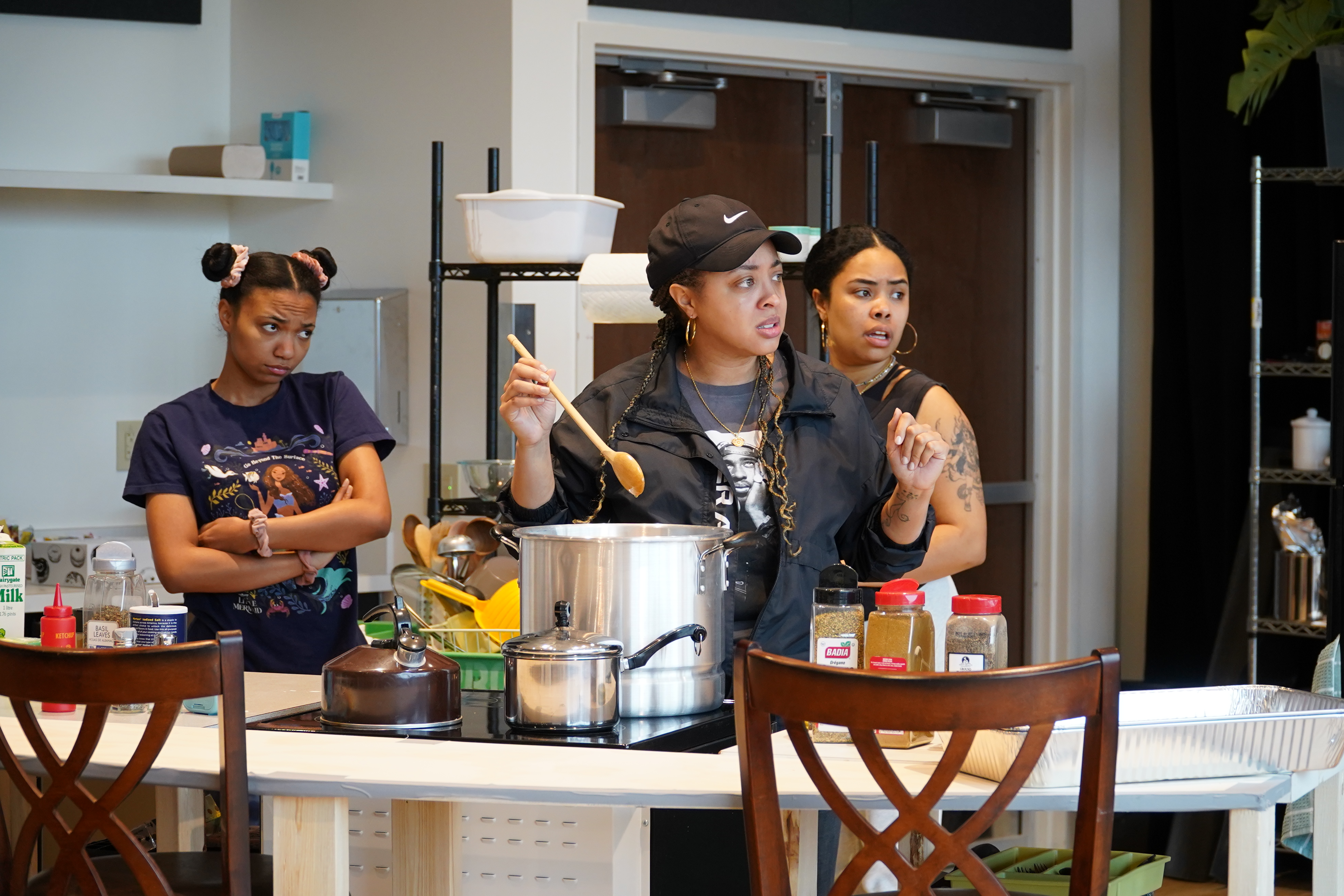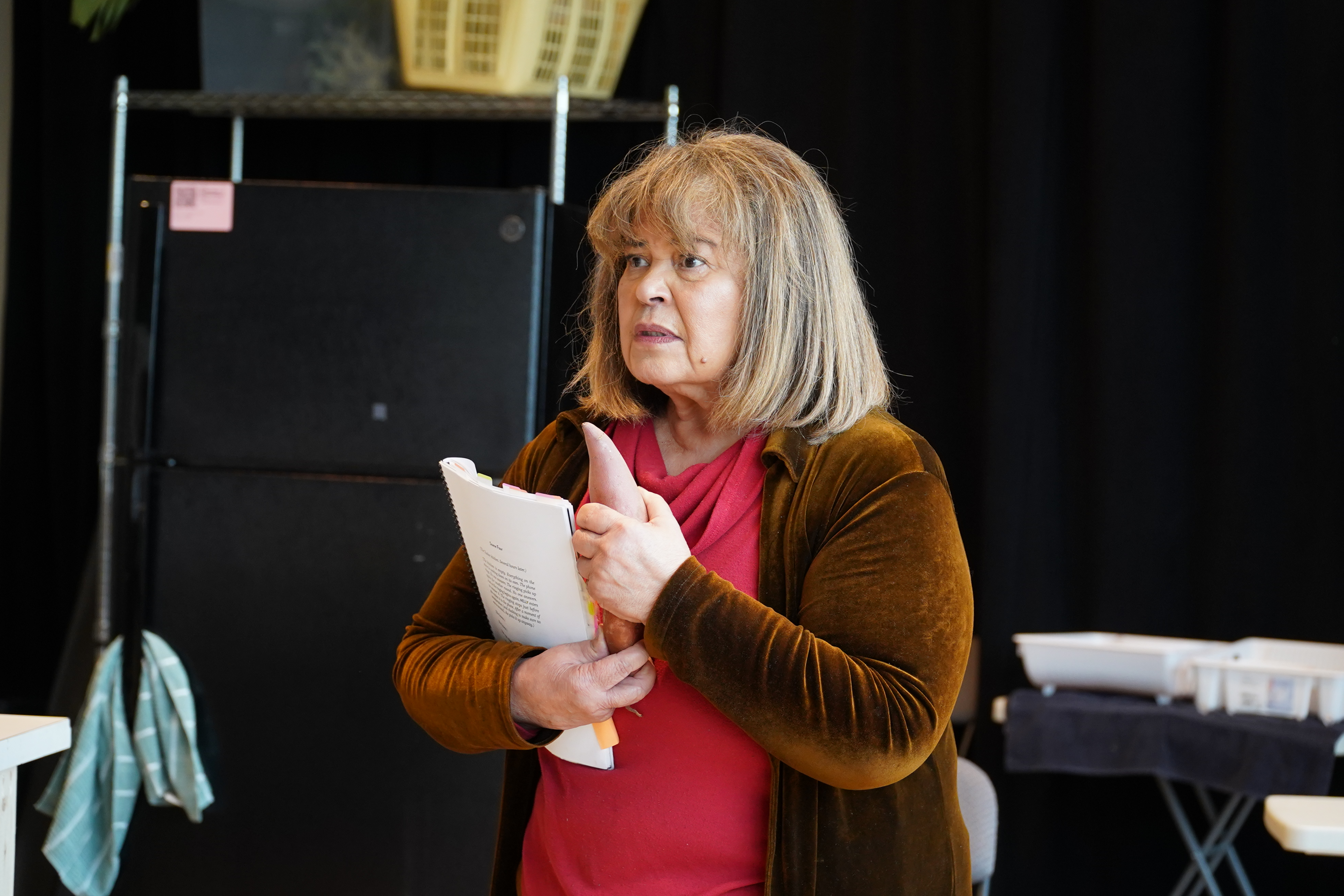Authentic. Captivating. Resilient.

Zora Howard's Stew is a compelling and humorous examination of the tight and familial bond between three generations of Black women connecting, feuding and reconciling while reflecting each other in the process. The 2021 Pulitzer Prize-nominated drama is rooted in the relatable confines of Mama's kitchen, where an important meal is being prepared with love, precision and thoughtfulness. As the stew simmers, tensions mount, secrets are revealed, and the past and the present collide with thought-provoking velocity and intriguing ambiguity.
When Stew received its world premiere in 2020 off-Broadway at New York's Page 73, The New Yorker described the script as feeling "familiar without being cliche, delivering a captivating story that's intimate, funny, and heartbreaking in equal measure." The fundamentals of the play provide a universal microcosm of the American family, but the specificity of its richly drawn characters — strong women of color owning their authenticity — is based on individuals Howard knew.
In an interview with Shattered Globe Theatre, which mounted Stew's Chicago premiere in 2022, the playwright reflected on the women who helped shape her creation. "There are so many things that make Stew special, but the most important thing is the women at the center of the play," Howard said. "I spent a lot of time with them over many years when writing the play and getting to know them and their mannerisms and how they were related to one another. I fell in love with them. So, every time I get to see them animated and taking up space on a stage is very special."
 Photo of Sydnie Brown (Lil’ Mama), Shayna Small (Lillian) and Maliyah Gramata-Jones (Nelly) in rehearsal for Stew
Photo of Sydnie Brown (Lil’ Mama), Shayna Small (Lillian) and Maliyah Gramata-Jones (Nelly) in rehearsal for Stew
In the play, the relationship between Mama, the ailing, churchgoing matriarch whose talents include a penchant for Shakespeare, and her eldest daughter Lillian, battling a crisis of conscience, is key in terms of emotion and interplay. Both women come to realize the depth of their trauma, particularly regarding issues of marriage, fidelity and responsibilities within the larger narrative of Black motherhood.
In her 2021 qualitive study Mothering Through our Pain: Single Black Mothers' Narratives, Yolanda E. Surrency interviewed several Black mother/daughter pairs to investigate — through the lens of Black feminism — Black mothers' lived experiences to understand their struggles and resistance. One pair in particular, 54-year-old Deneen and her 29-year-old daughter Breanna, discussed feelings of rejection and self-consciousness due to their Blackness. "As a Black woman growing up, I never truly felt like at first that I was being appreciated," Deneen said. "I always felt like I was always the one that was in the background because I didn't think I was pretty enough...But as I got older and growing up, then I realized that I had to make the decision as to who I wanted to be. I couldn't always just worry about what people thought...It's hard being a Black woman especially when you're real confident and you know yourself."
As Deneen and Breanna reiterate the pain of Black female adolescence, Mama and Lillian similarly find kinship as women with comparable trauma in the play. Howard's script speaks to both mother/daughter pairs — and audiences alike — in its empowering challenge to keep pressing forward, to keep evolving, despite obstacles. "What you're waiting on is layers," Mama says in Stew. "Each layer to settle down and the next one to stack on top of the one before it. Stack and settle. Stack and settle. And season! And you can't just wait 'til the end of it all and expect it to come out alright."
 Michele Shay (Mama) in rehearsal for Stew
Michele Shay (Mama) in rehearsal for Stew
As Stew has its regional premiere at the Playhouse, the joy and tribulations of Black women concerned about their health, identity, resiliency and the Black men they deeply care about has the power to resonate personally and collectively.
"I think the brilliant thing about theatre-making is that you can't control what people's experience of the work is," said Howard in the aforementioned interview. "The most I can hope for is that folks are moved in some way."